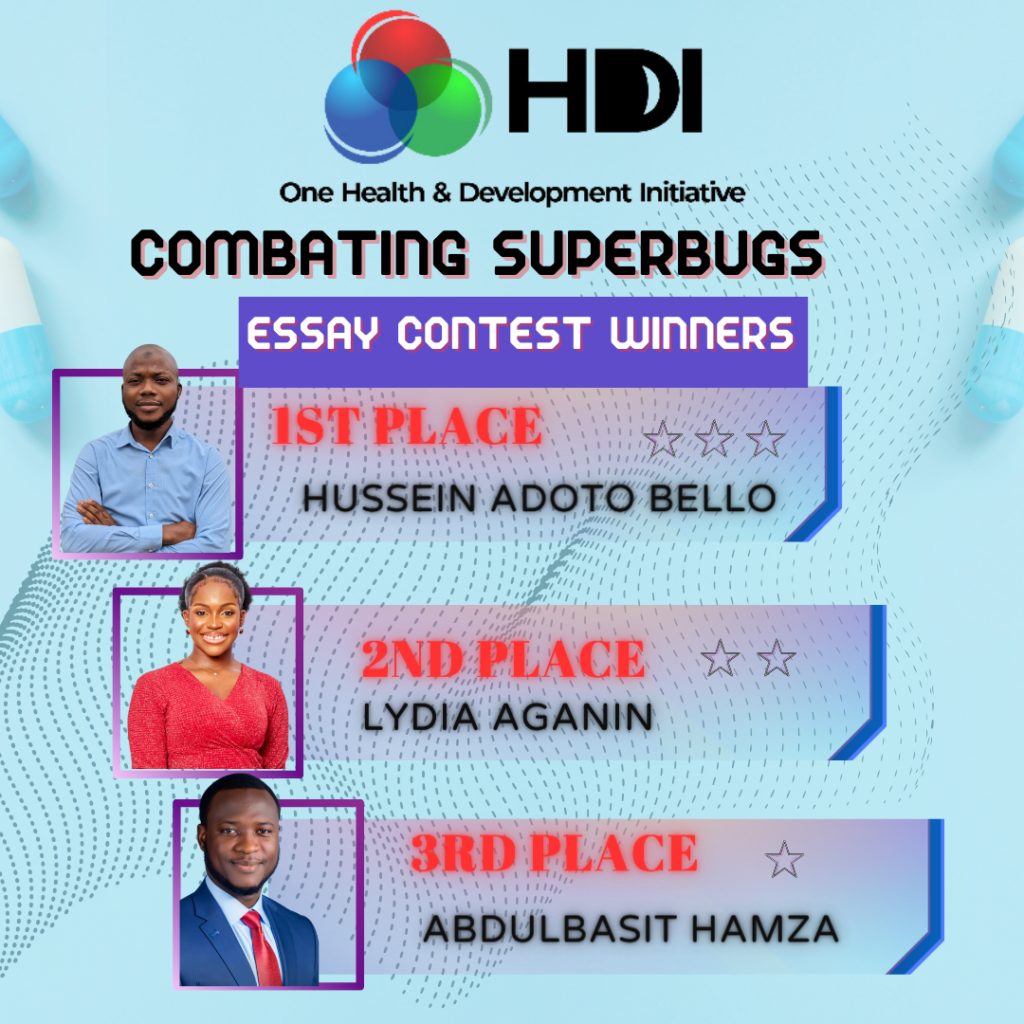
The “Combating Superbugs: Undergraduates Innovating to Fight Antimicrobial Resistance” challenge came to an end with the announcement of three victors. This was done during our “After WAAW: Youth Involvement in Continuous AMR Prevention and Control Efforts” webinar.
Meet the winners

The winner of the “Combating superbugs” essay is Hussein Adoto Bello, a student of medicine and surgery from the University of Ilorin. He was awarded the winner prize of one hundred thousand naira.

The first runner up of our essay competition is Lydia Aganin, a student of Law from the University of Uyo. She was awarded the first runner up prize of sixty thousand naira.

The second runner up of our essay competition is Abdulbasit Hamza, a student from the University of Ibadan. He was awarded the second runner up prize of forty thousand naira.
Who else impressed the Evaluation Panel?
Among the five finalists are two other essays. These two other essays that impressed the evaluation panel were that of Akinlabi Maryam Oluwakemi, a student of English and Communication Studies from Federal University, Otuoke; and Aisiri Champion Happiness a student of Microbiology from Obafemi Awolowo University.
Overview of the essay competition
Overall the “Combating superbugs: Undergraduates innovating to fight Antimicrobial Resistance competition was a great success. This contest was part of the activities that were implemented by OHDI to mark the 2023 World Antimicrobial Resistance Awareness Week (WAAW). The purpose of this essay contest was to stimulate the innovative capacities of youths in Nigeria towards tackling the problem of Antimicrobial Resistance. Entries of the contest came in from 18th November, 2023 to 30th November 2023.
This essay competition attracted 166 entries, 154 of which were within the entry time frame. The entries came from students in six regions of Nigeria. Though the essay competition was only for students in Nigeria, it saw entries from students in other countries such as Ghana, Bangladesh, Cameroon, Tanzania, and Benin Republic.
We got entries from 43 tertiary institutions in Nigeria, and 5 in Africa and Asia. In Nigeria, the region with the highest number of entries, with 26% of the total entries, was the North-West region, followed by the North-Central and South-East regions with 20.0% each. 13.3% of the entries came from the South-West, and the South-South regions. The least number of entries came from the North-East region, accounting for only 6.7% of the overall entries that were obtained from the contest.
This challenge brought to the fore the multidisciplinary nature of AMR. The entries that we received cut across a number of disciplines from the life sciences, social sciences, humanities and law. This gave us the impression that key One Health issues, such as AMR, are everyone’s business.
We appreciate the role that was played by the evaluation panel of the challenge. The panel was made up of five members, including (1) Pharmacist Olawale Agbaje (2) Pharmacist Egwu Kenneth (3) Maryam Abdulkarim (4) Dr. Abdullah Al-Awal and (5) Damilola Adesuyi.





